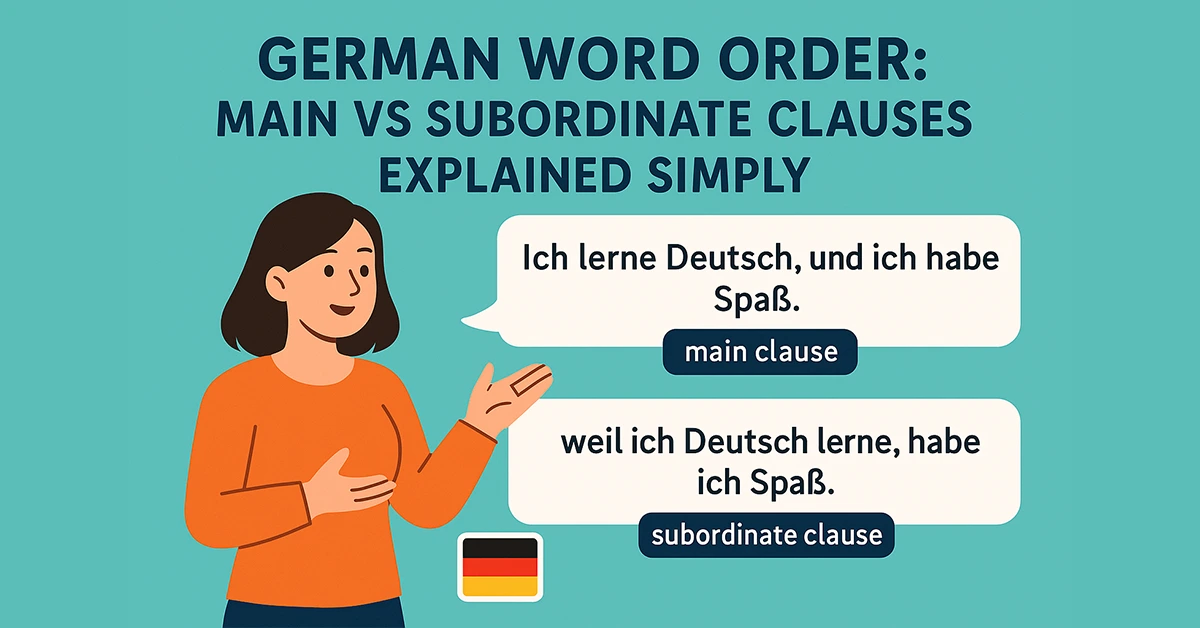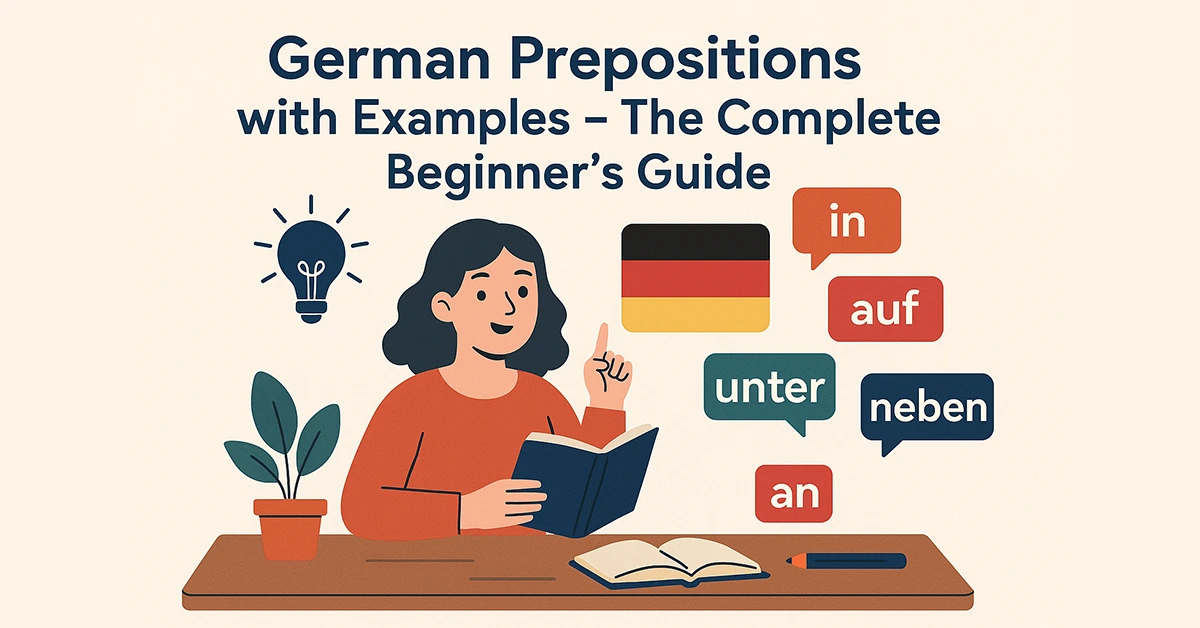german grammar rules
-

German Word Order: Main vs Subordinate Clauses Explained Simply
Learn how German word order works in main and subordinate clauses. This guide explains clear rules, real examples, and key tips to master sentence structure.
-

German Prepositions with Examples – Complete Beginner’s Guide
Learn how to use German prepositions with real-life examples, tables, and tips. Covers accusative, dative, genitive, and two-way prepositions for beginners!